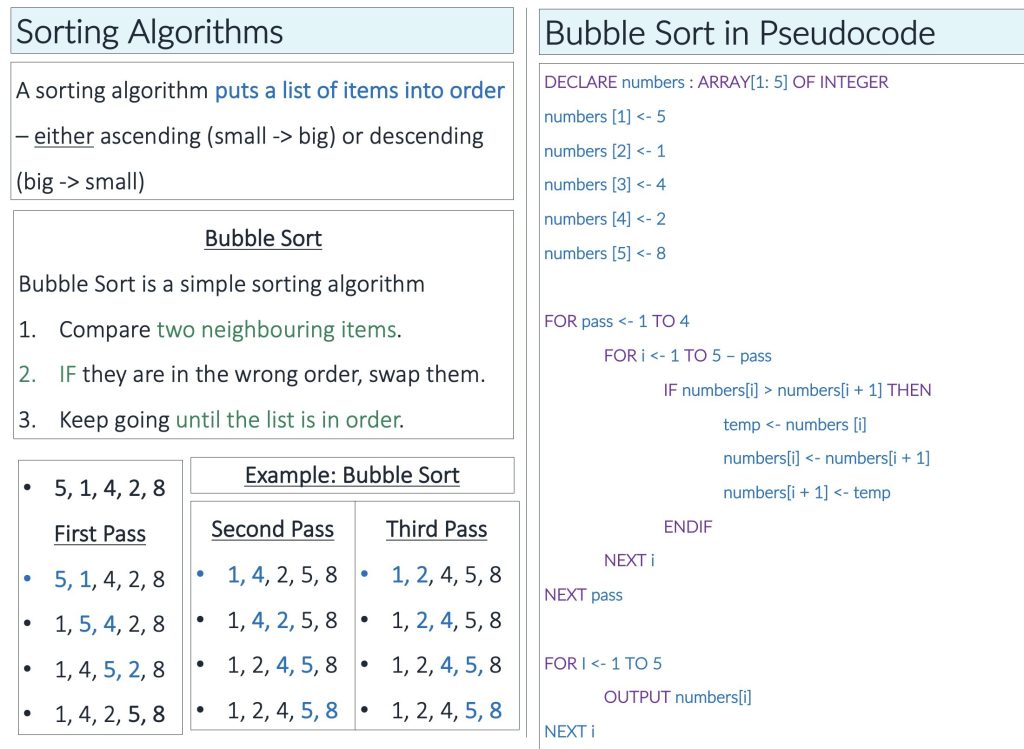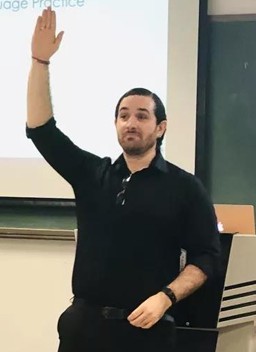Building English language skills with Chinese Computer Science students
Rhys Anslow’s iGCSE Computer Science students were bright – but not ‘getting it’. A change of classroom approach now seems to be unlocking the door for them.
The puzzle of disappointing grades
Picture the scene. It is June, the hot humid Beijing heat battles with my blasting classroom air conditioning. I am sitting at my desk with an increasingly sullen face as I read the newly received excel document. ‘Grade D’, ‘Grade E’, ‘Fail’, ‘Fail’. Sigh. I am reviewing the official results of my first year iGCSE Computer Science End of Year exams.
Only two weeks ago I was sure of success. This cohort of learners had been my big project of the year. Schemes of Work had been timed perfectly, lessons scaffolded appropriately, students walking into retrieval tasks and leaving while successfully showing their exit tickets.

Matching the Schemes, six custom-made bilingual booklets had been created specifically for students, all featuring essential vocabulary banks, simplified input explanations, comprehension tasks, and step by step language building exercises.
Had there been concerns? Absolutely, always, but Chinese students do tend to have a habit of intense pre-exam preparation. Surely, I had done everything possible to help these students thrive?
Clearly not.
A responsibility to changing course
I continued to read over the grades of these intelligent, capable students with predictive CEM scores to match their high target grades. As I walked out of school for the summer holiday, I realised I needed to hit the ground running in Year 11. I needed to ensure these students had the support needed for their final year.
As with every international educator, old or new, based in China, I was looking forward to the next year with the same reflections: how do I best support these students’ language building? How do I compromise ‘Understanding Content vs Understanding Essential Exam Wording’? How much do I base my lessons in English immersion?
Fast forward to the end of August, after a summer of planning I return to school with a fully bilingual questionnaire and one clear research question –
“How might my Year 11 students reflect on their progress and the challenge of acquiring subject-specific English for iGCSE Computer Science after a year of instruction in a British International School in China?”
Admittedly, not a question that rolls easily off the tongue, but perhaps the answer to both my needs and, more importantly, my students.
Asking what they needed
The three-part questionnaire went out to students the moment they re-entered the school and with the weeklong deadline finally closing I was eager to see how many responses I’d received, and what exactly students were thinking. Cons? Only a minority of students took the voluntary option to complete the questionnaire. A disappointment to be sure, but ‘quality over quantity’ every time (and perhaps another indicator of their confidence in discussing their English abilities?). Pros? Responding students had answered all sections fully and I had plenty of data to digest and dive into.
The questionnaire
I had kept it simple. In Section 1 there was a set of closed Likert-scale questions asking students to report their confidence levels in the challenge of the subject, if they understood the vocabulary and how confident they feel in writing the keywords. Section 2 featured fifteen randomly chosen iGCSE key words (thanks, ChatGPT) and asked students to rate their confidence in using each word from 1 (not confident) to 5 (very confident). Section 3, providing the most interesting revelations, included five open-ended questions asking students what helped them the most when learning vocabulary and, importantly, how the teacher (me!) could improve this year to help them.
Findings
The moment of truth – what were the findings?
Sections 1 and 2 both were model examples of confirmation bias with students being honest that they found our vocabulary difficult and that they hadn’t understood a lot of our key words. But the interesting evidence came straight out of Section 3:
“I found it quite challenging to learn the vocabulary. I think the main point is to explain these definitions clearly and give some examples”
“Learning the key points with guidance, not just doing questions and then checking answers”
“Explain definitions clearly and give examples”

The big ask
It’s fair to say that I have been an ideological constructivist throughout my teaching career, allowing students to work out their own meaning of what they were learning. I had given these students all the information they needed (e.g., input, translated key vocabulary etc.) on either a PPT slide in their differentiated booklets, handing them a set of Concept Checking Questions (CCQs) afterwards and then acted as a facilitator as I hope they would work things out. Yet it seems all respondents were asking for one thing – students were asking for culturally appropriate Confucian approaches. They wanted a teacher-centered approach, a ‘sage on the stage’. They wanted the very opposite to everything I had been trying with them.
BUT . . .
. . . was this a valid wish for their education? Or just a desire for cultural satisfaction?

Two months later
Fast forward, it’s now two months later. I’ve been humbled to put my ideology aside and I am now following my students’ wishes. Every lesson starts with explicit direct instruction on key vocabulary followed by CCQs. Every input is read by me, translating paragraph by paragraph if needed. Are all students now fully thriving and engaged? No, that was never going to happen in such a short time. Are they starting to show more comprehension? Yes. Are they starting to demonstrate more subject-related oracy? Yes. Are they starting to use more key vocabulary in their writing work? Thankfully, yes.
It is just the beginning of the academic year, and I don’t fully know how successful my changed approach will be. But I’m going to listen better to the cultural needs of my students. I’m going to better balance both their culture and my pedagogy.

Rhys Anslow teaches English Literature & Computer Science Teacher / Head Of Year at Harrow Beijing
FEATURE IMAGE: Getty Images For Unsplash+
Support Images: Many thanks to Rhys.
- Bilingual iGCSE booklet_language exercise example
- Actual lesson input
- Lesson starter
The post Culture and Pedagogy appeared first on Consilium Education.


